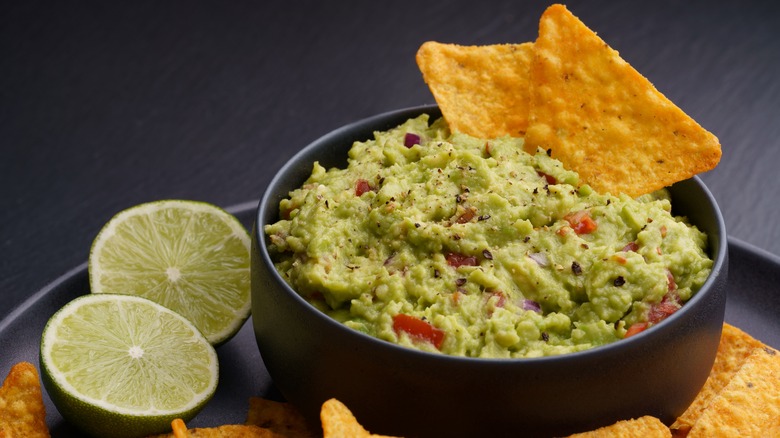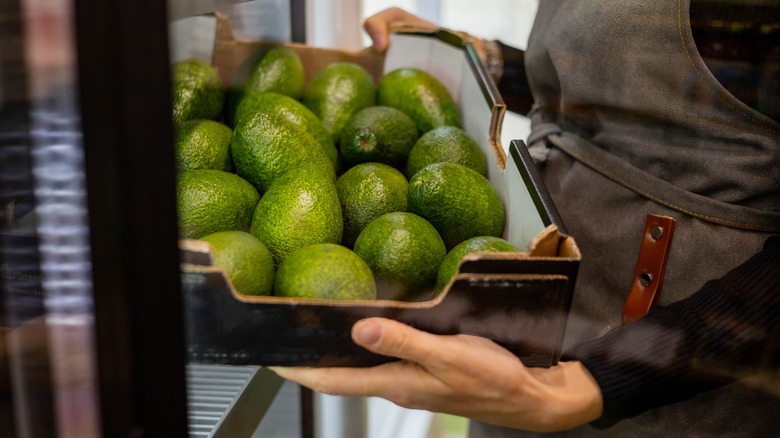How The Super Bowl Helped Guacamole Find Its Footing In The US
Today, avocados are a nearly universal presence in grocery stores, available coast-to-coast from California to Maine. It seems we can't get enough of them, but once upon a time, not too long ago, in fact, Americans needed a lot of convincing just to try avocados, and when they did, they were often unimpressed. Well into the 20th century, avocados were only popular in their native southwest, namely in California (via Britannica and Scientific American). Early on, avocados faced an uphill battle with consumers, due in part to their original English moniker, the 'alligator pear.' Unsurprisingly, this name wasn't a great selling point for many shoppers.
Between 1914 and 1997, the United States Government banned avocado imports from Mexico over concerns about invasive pests, leaving California farmers with a monopoly on the fruit in America (via Los Angeles Times). Soon after, members of the California Avocado Growers' Exchange came together, determined to revamp the fruit's image in the states, beginning with a new name (via The Atlantic). They decided on 'avocado,' an Anglicized take on the plant's Aztec name, 'ahuacacuahatl.' The growers figured that Americans would be drawn to the exotic-sounding label, and they also figured that nobody would look up 'ahuacacuahatl' and realize it means 'testicle tree.'
Fortunately, they were right, and avocados started to see an uptick in sales, but there was a bigger problem: the Americans who purchased avocados, predominantly wealthy and white, had no real clue what to do with them.
The Guacamole Bowl taught America to love avocados
In the mid-1900s, avocados were marketed as a luxury item for wealthy people to put on their salads, a move that achieved only lukewarm results, as sales still lagged (via CBC). Americans just didn't understand the fruits. They didn't even know how to ripen avocados, constantly cutting them open too soon. Then, in the 1980s, a big scare about 'fats' in food that failed to differentiate between unhealthy saturated fats and healthy monounsaturated fats, like those in avocado, further damaged the fruit's reputation (via Scientific American).
In the next decade, the California Avocado Commission needed help, so they called on PR firm Hill & Knowlton to seize the biggest ad market of all: the Super Bowl (via The Atlantic). In 1992, a team at Hill & Knowlton came up with the Guacamole Bowl. Correctly recognizing that many of the trendiest avocado recipes among the wealthy were deathly bland, the group decided that guacamole was the best way to showcase the ingredient. Per the Atlantic, they called on NFL players and their families to submit guacamole recipes for the public to try, giving avocados a celebrity boost.
This was coupled with an aggressive in-person campaign at NFL events, where everyone from the fans to the reporters were pressed by Hill & Knowlton offering free guac. The campaign succeeded, helping to turn avocados into the nearly $2 billion industry they are today (via Statista) and introducing Americans to their favorite game day dip.

